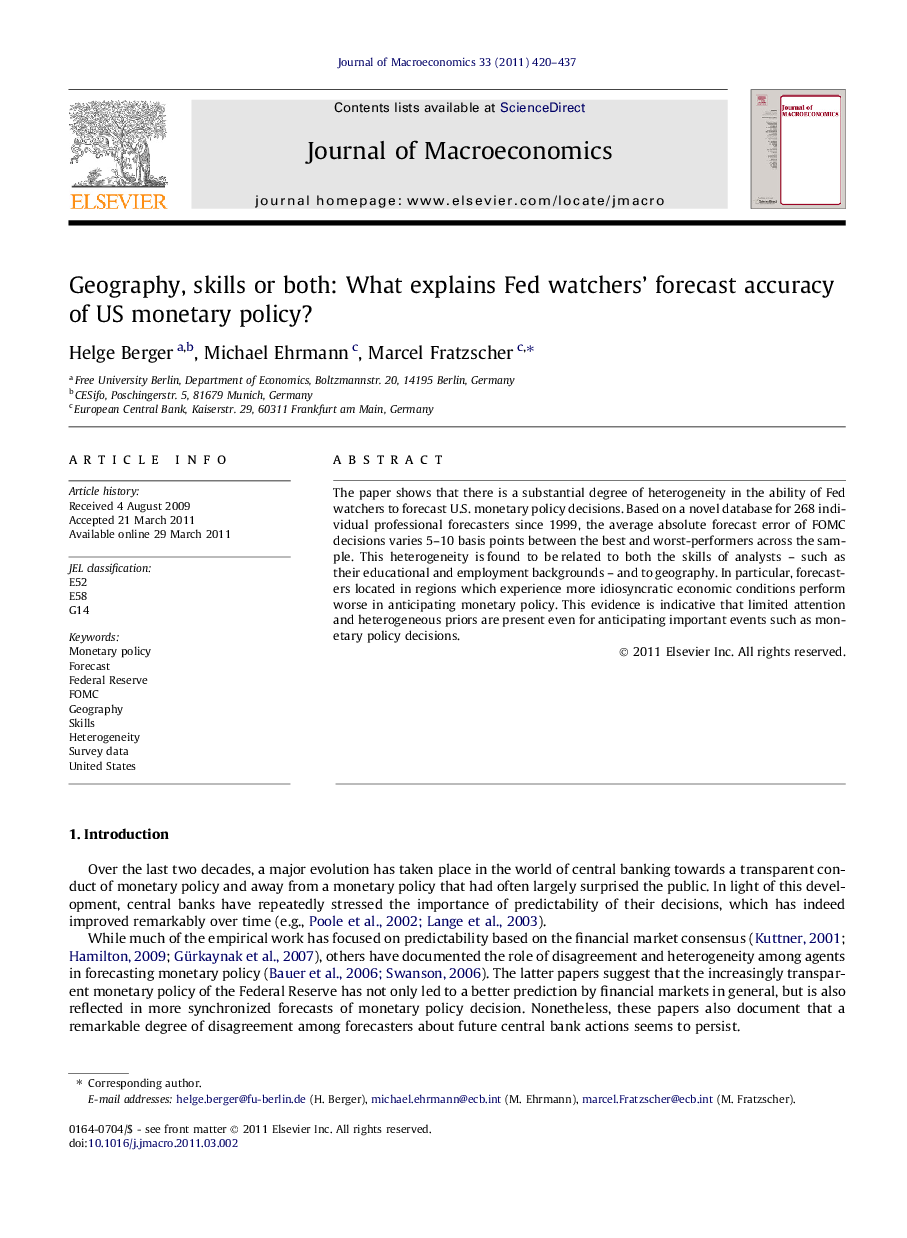| Article ID | Journal | Published Year | Pages | File Type |
|---|---|---|---|---|
| 965952 | Journal of Macroeconomics | 2011 | 18 Pages |
Abstract
The paper shows that there is a substantial degree of heterogeneity in the ability of Fed watchers to forecast US monetary policy decisions. Based on a novel database for 268 individual professional forecasters since 1999, the average absolute forecast error of FOMC decisions varies 5-10 basis points between the best and worst-performers across the sample. This heterogeneity is found to be related to both the skills of analysts - such as their educational and employment backgrounds - and to geography. In particular, forecasters located in regions which experience more idiosyncratic economic conditions perform worse in anticipating monetary policy. This evidence is indicative that limited attention and heterogeneous priors are present even for anticipating important events such as monetary policy decisions.
Keywords
Related Topics
Social Sciences and Humanities
Economics, Econometrics and Finance
Economics and Econometrics
Authors
Helge Berger, Michael Ehrmann, Marcel Fratzscher,
